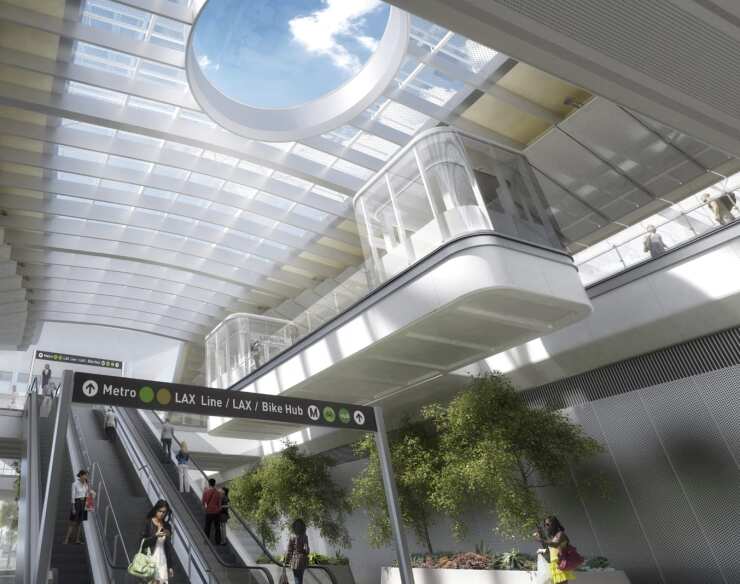The Los Angeles County Metropolitan Transportation Authority broke ground on a project Monday that moves a direct rail connection to the Los Angeles International Airport one step closer to reality.
The $898.6 million endeavor, designed to help alleviate the infamous pick-up and drop-off congestion at the airport, will open in late 2024.
“The Airport Metro Connector is a historic step toward reimagining how travelers experience our airport — a turning point that will be a source of jobs and economic growth, reduce congestion, and help our airport realize its potential as a world-class gateway to Los Angeles,” Mayor Eric Garcetti said during the event.

The connector project is the ninth station along the currently under-construction Crenshaw/LAX Line, but Garcetti compared it in stature to Union Station, the city’s largest train station, which also serves Amtrak.
When complete, it will directly connect with the Los Angeles World Airports Automated People Mover project — a train whisking travelers directly to airport terminals, expected to be completed in 2023.
Financing for the $5 billion, 2.25-mile automated people mover project
The metro connect station near Aviation Boulevard and 96th Street will have 12 escalators and 13 elevators to link platforms for the Crenshaw-LAX line, a 16-bay bus plaza, a bicycle hub, a private vehicle drop-off zone, and a customer service-ticketing center.
“This is a landmark project, particularly as the region looks to bring planes, trains, buses, automobiles and bicycles together,” said Stephanie Wiggins, LA Metro’s chief executive officer.
The project was designed to achieve a Leadership in Energy and Environmental Design gold rating by including such sustainable features as 550,000-plus kilowatts of solar panels, native landscaping and electric bus charging stations.
LA Metro’s board, which Garcetti chairs, approved $898.6 million for the connector project on April 22.
The budget is roughly $315 million higher than the amount Metro stipulated in supporting documents for Measure M, the sales tax increase voters approved in 2016. In its board report, Metro cited higher land acquisition costs as the primary reason for the budget increase.





